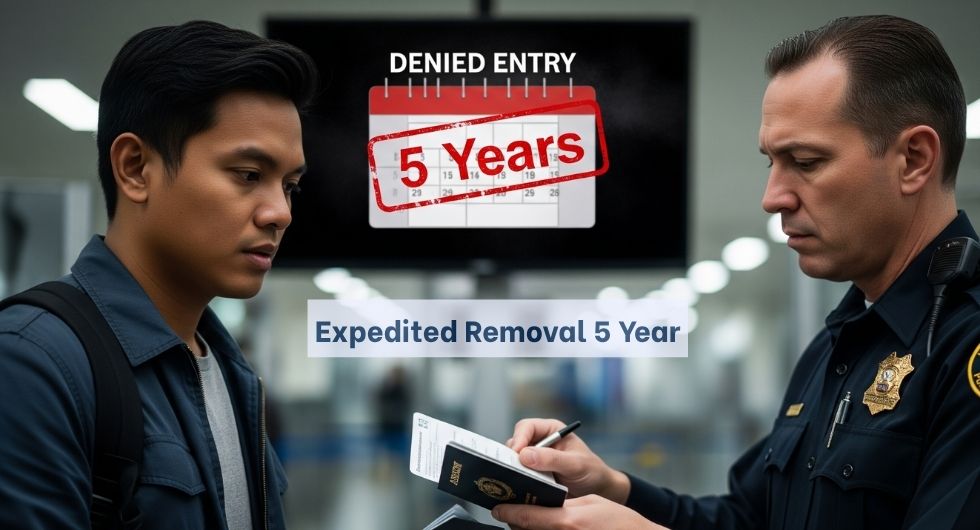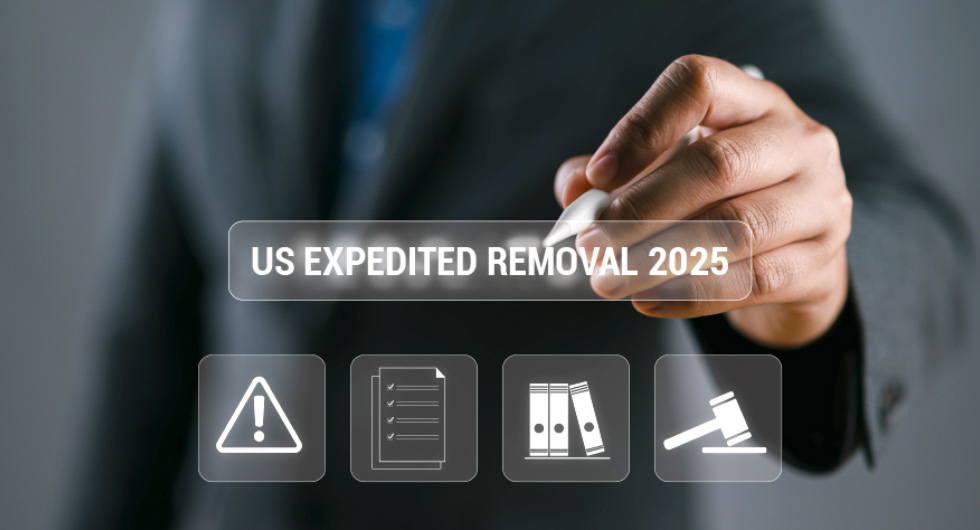Immigrant Buying House in US: A Complete Guide for 2025

Buying a home is a major milestone and for many immigrants, it represents the fulfillment of the American dream. The best part? Immigrant buying house in US is fully legal, with growing options no matter your visa or citizenship status.
Whether you’re on a visa, hold a green card, or use an ITIN, there are real paths to homeownership. This guide covers everything you need to know about immigrant buying house in US, from eligibility and financing to step-by-step guidance and support programs.
1. Can an Immigrant Buy a House in the US?
Yes, the immigrant has a right to purchase land in the U.S. Homeownership is attainable even as a permanent resident, a visa holder or even an illegal immigrant. Nonetheless, the immigration status may impact your position when buying a house and choosing the kind of property to purchase.
1.1. Immigration Categories Eligible for Homeownership
In the U.S., foreign nationals can legally buy and own property, regardless of immigration status. For anyone interested in immigrant buying house in US, it's important to understand what options are available by category:
Green Card Holders (Lawful Permanent Residents): Such people practically have no restrictions. They will be able to apply and receive all the most popular mortgage types, such as FHA, VA (in case of eligibility), and conventional. Using a Social Security Number (SSN), income verification, and credit history, they do the same thing as a U.S citizen.

Immigrant buying house in US for green card, visa, and ITIN holders
Visa Holders (Temporary Residents): Individuals on visas such as H-1B (work), L-1 (intra-company transfer), or F-1 (student) are also allowed to purchase property. But eligibility on mortgages are based on duration of the visa, job security and financial documents supplied. Certain lenders can even hesitate to offer long term loans to short term visa holders.
Undocumented Immigrants: Even the undocumented immigrants are allowed by law to buy and own property in the U.S. Nevertheless, they cannot acquire SSN or that, they typically:
- Buy homes with cash, or
- Apply for special ITIN mortgage loans.
1.2. How Do Immigrants Without an SSN Buy a Home?
The immigrant might not possess a Social Security Number, but he/she can receive a mortgage with the help of an Individual Taxpayer Identification Number (ITIN).
The ITIN is issued by the IRS to individuals who are not eligible for an SSN but still need to file U.S. taxes. This covers a majority of illegal immigrants and some visa owners.
With an ITIN, an immigrant can:
- File taxes to show proof of income
- Open a U.S. bank account
- Apply for ITIN mortgage loans through lenders who offer this option
For many people interested in immigrant buying house in US, this ITIN route provides an accessible alternative to traditional financing.
- ITIN loans often require:
- A higher down payment (typically 10%–20%)
- Proof of consistent income (via tax returns or employment records)
- Possibly a co-signer or additional documentation
Note: ITIN loans are not offered by all banks — mostly credit unions, private lenders, or specialized programs.
1.3. State-specific laws to consider
While federal law does not prohibit immigrants from buying homes, some U.S. states have recently passed or proposed laws that may impact certain foreign buyers:
- Florida, Texas, Alabama, and others have introduced restrictions targeting citizens from specific countries (e.g., China, Russia, Iran) in the name of national security. These laws may limit or ban the purchase of certain property types (like agricultural or military-adjacent land).
- California, New York, and Illinois, however, stick to their inclusive housing policies and preserve the rights of immigrants.
Can an immigrant buy a house in the US? Absolutely—but staying informed about your legal rights and local restrictions is key to making smart real estate decisions.

State-specific laws for immigrant buying house in US
2. Step-by-Step Process for Immigrant Buying House in US
Buying a house in the U.S. involves several stages, these steps walk you through the immigrant buying house in US process, incorporating immigration-specific details and financing considerations.
Step 1: Estimate Your Budget & Understand Financing
The first step in the immigrant buying house in US process is understanding what you can afford.
- Review your income, savings, and debts.
- Most loans require a 5%–20% down payment; ITIN loans may need more.
- Green card holders and many visa holders (H-1B, L-1, F-1 with income) may qualify for FHA, USDA, or conventional loans.
- Undocumented immigrants can buy with cash or through ITIN mortgage programs.
Step 2: Build or Establish Credit History
- Use secured credit cards, rent/utility reporting, or small loans to build credit.
- Some lenders accept translated foreign credit history if verified.
Step 3: Get Pre-Approved for a Mortgage
Pre-approval strengthens your position in the immigrant buying house in US journey. Prepare:
- SSN or ITIN
- Tax returns from the past 2 years
- Bank statements (2–3 months)
- Pay stubs, employment contract, or self-employment proof
If you don’t have a U.S. credit file, provide alternative documentation like rent history.
Step 4: Choose an Immigrant-Friendly Real Estate Agent
- Find an agent with experience working with international or first-time buyers.
- They can connect you with immigrant-friendly lenders and local assistance programs.
Step 5: Search for the Right Home
- Use sites like Zillow, Redfin, or your agent’s listings.
- Prioritize neighborhoods with:
- Good schools and transport
- Job access or universities
- Supportive immigrant communities
Step 6: Make an Offer & Negotiate
In the immigrant buying house in US process, your agent helps structure a solid offer, including:
- Purchase price
- Contingencies (loan, inspection, etc.)
- Earnest money (1–3% of price)
Step 7: Home Inspection, Appraisal & Loan Approval
- Home inspection checks property condition
- Appraisal confirms fair market value
- Loan underwriting reviews your financial documents
Step 8: Close the Sale
Sign the final documents and pay:
- Down payment
- Closing costs (typically 2–5% of home price)
You can sign remotely if you're outside the U.S., using a notary or power of attorney
Tip: The immigrant buying house in US process can be smoother with support from real estate and financial professionals who understand immigration-related challenges.

Step-by-step process for immigrant buying house in US
3. Financial Requirements for Buying a House
The major requirements by the immigrants in the financial aspects which should be familiarized with in the preparations of immigrant buying house in US process are listed below:
3.1. Minimum credit score by lender type
Your credit score plays a major role in mortgage approval. For those in the immigrant buying house in US process, here are the typical minimum scores by loan type:
- Conventional Loans: Minimum score of 620. A score of above 700 can mean a better interest rate and reduced amounts of the private mortgage insurance (PMI).
- FHA Loans: Minimum score of 580 for 3.5% down payment. In case you score ranges between 500-579, a 10% down payment may be required.
- USDA Loans: A minimum score of 640 is often needed to qualify for automatic underwriting via the USDA system.
- VA Loans: Even though the VA does not have a minimum credit, most lenders require at least 620.
- ITIN Loans: Offered by private lenders and credit unions for those without a Social Security Number. Minimum scores range from 620–660, depending on the lender. Some may accept alternative credit data if you lack a U.S. credit history.
3.2. How to build credit as a new immigrant
Many immigrants lack a U.S. credit history, which can make the immigrant buying house in US journey more challenging. Here are ways to start building your credit:
- Apply for a secured credit card through a bank or credit union.
- Use services that report rent and utility payments to credit bureaus.
- Take out a small personal loan or a credit-builder loan and repay it consistently.
- Keep credit usage below 30% of your limit and always pay on time.
- Provide foreign credit history, where possible, through services such as Nova Credit (accepted by a certain number of lenders).
With time consistent monetary practices will assist in incorporating an excellent credit record which will benefit when applying for mortgages specifically if the individual faces immigrant buying house in US challenges.
3.3. Documents to prove income (foreign or U.S.-based)
To qualify for a mortgage, you must prove your ability to repay the loan. Lenders typically ask for:
- Recent tax returns (usually two years)
- W-2s or 1099 forms (if employed in the U.S.)
- Pay stubs showing steady income
- Bank statements (typically last 2–3 months)
- Evidence of foreign income; where accepted, translated and certified documents of foreign tax returns, employment letters or contracts
- Self-employed immigrants may need profit & loss statements and business bank records
For those involved in the immigrant buying house in US process without a traditional credit profile, strong documentation is key. If applying with an ITIN, expect to provide extra paperwork or a larger down payment.

Financial requirements and support programs for immigrant buying house in US
4. Homeownership Support Programs for Immigrants
In the U.S, immigrants have an array of support programs that could make homes more affordable, particularly to first-time or low-income purchasers.
Common programs include:
- FHA Loans: Accessible to green card owners, long-term visa owners and ITIN owners. Require lower credit scores and as little as 3.5% down payment.
- Down Payment Assistance (DPA): Most states and cities provide grants or rather low-interest loans to finance the down payment. It is usually legal residence and not necessarily citizenship.
- ITIN Mortgage Programs: Some credit unions and other lenders provide home loans to qualified borrowers with a non-SSN through the ITIN with a proven income.
- Nonprofit Support: Such organizations as NeighborWorks, Habitat for Humanity, and local housing agencies offer homebuyer education, financial counseling, and assistance programs tailored to immigrant communities.
Note: Eligibility depends on the program and location. Work with an immigrant-friendly agent or counselor to explore your options for immigrant buying house in US.
Conclusion
While the immigrant buying house in US process may involve additional steps, it remains fully achievable with proper planning and preparation. Whether you hold a green card, a valid visa, or an ITIN, there are clear paths to homeownership through responsible credit building, tailored financial solutions, and available support programs.
Understanding your eligibility, knowing the requirements, and working with professionals who are familiar with immigrant needs will significantly improve your chances of success.
To make the journey smoother, consider consulting with experts. UOM Global — a trusted immigration advisory firm — can help you align your visa strategy with your long-term housing goals, ensuring each step supports your future in the U.S.
View More
If you would like to request an update or have any questions, please contact us at [email protected].
Related Articles












